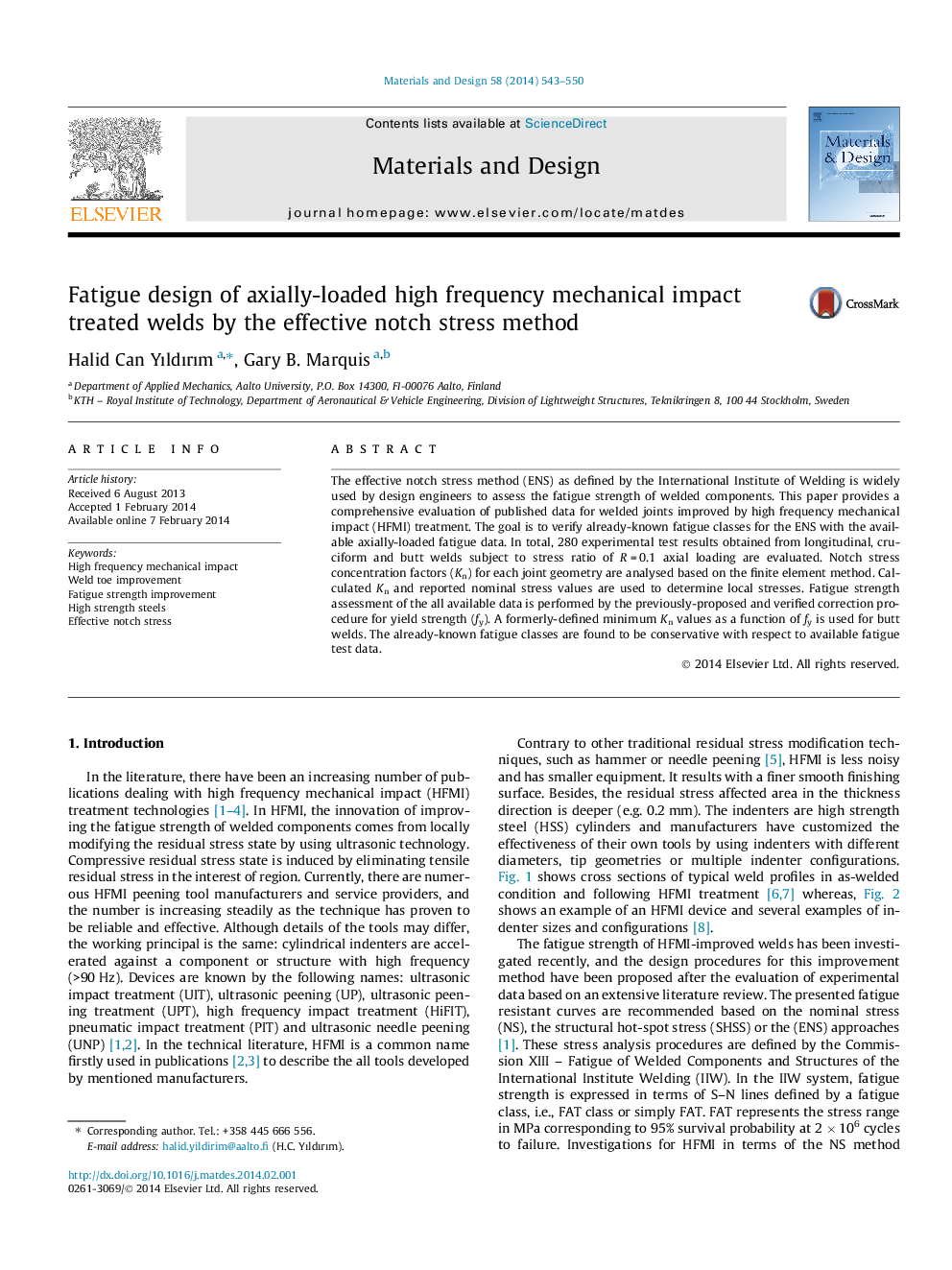| کد مقاله | کد نشریه | سال انتشار | مقاله انگلیسی | نسخه تمام متن |
|---|---|---|---|---|
| 829309 | 1470339 | 2014 | 8 صفحه PDF | دانلود رایگان |
• 280 experimental test results subject to axial loading at R = 0.1 have been reviewed.
• Special considerations, Kn,min, for HFMI mild notches are presented and applied.
• Previously-developed fy correction is implemented for the fatigue assessment.
• Aim is to verify FAT values in the ENS for all axially-loaded HFMI-improved welds.
• The proposed FAT classes are shown to be conservative with respect to fatigue data.
The effective notch stress method (ENS) as defined by the International Institute of Welding is widely used by design engineers to assess the fatigue strength of welded components. This paper provides a comprehensive evaluation of published data for welded joints improved by high frequency mechanical impact (HFMI) treatment. The goal is to verify already-known fatigue classes for the ENS with the available axially-loaded fatigue data. In total, 280 experimental test results obtained from longitudinal, cruciform and butt welds subject to stress ratio of R = 0.1 axial loading are evaluated. Notch stress concentration factors (Kn) for each joint geometry are analysed based on the finite element method. Calculated Kn and reported nominal stress values are used to determine local stresses. Fatigue strength assessment of the all available data is performed by the previously-proposed and verified correction procedure for yield strength (fy). A formerly-defined minimum Kn values as a function of fy is used for butt welds. The already-known fatigue classes are found to be conservative with respect to available fatigue test data.
Journal: Materials & Design - Volume 58, June 2014, Pages 543–550
